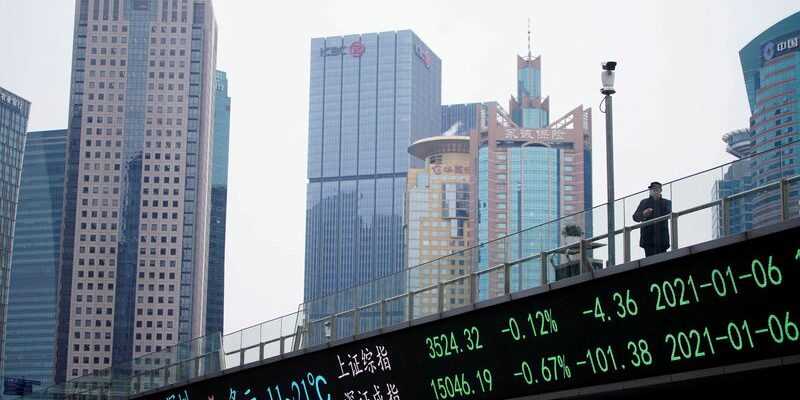Due to a holiday in China, trading was slow and MSCI’s broadest index of stocks in the Asia-Pacific region, excluding Japan, fell 0.1%.
The Japanese Nikkei was flat, while S&P 500 stock futures fell 0.2% and Nasdaq 0.3%.
As peace talks between Russia and Ukraine drag on, reports of Russian atrocities have led Germany to say the West will agree to impose more sanctions in the coming days.
Germany’s defense minister also said the European Union must discuss banning the import of Russian gas, a move that would likely push prices even higher while forcing some kind of energy rationing in Europe.
Data released last week showed inflation in the EU had already reached a record high, putting pressure on the European Central Bank to rein in runaway prices even as growth slows sharply .
“It really does seem like it’s time for the ECB to act,” ANZ analysts warned in a statement. “While the ECB will be cautious about raising rates, it certainly looks like it should act sooner to end its quantitative easing program.”
The US Federal Reserve has already raised rates and is seen doing much more after Friday’s strong March payroll report. Many Fed officials are scheduled to speak at public events this week, with the prospect of further hawkish noise, and minutes from the latest monetary policy meeting are due Wednesday.
“We now expect the Fed to hike 50 basis points in May, June and July, before easing the pace slightly with 25 basis point hikes at the September, November and December meetings,” he said. said Kevin Cummins, chief US economist at NatWest Markets.
“This will bring the funds rate into restrictive territory more quickly, with 2.50-2.75% at the end of 2022.”
Investors reacted by hammering short-dated Treasuries and further inverting the yield curve as the market priced in the risk that all that tightening would eventually lead to a recession.
On Monday, two-year yields hit their highest level in three years, 2.49%, and were well above the 10-year yield, 2.410%.
The jump in yields supported the US dollar, particularly against the yen as the Bank of Japan acted repeatedly in the past week to keep bond yields close to zero.
The dollar was trading firmly at 122.63 yen and is not far off its recent seven-year high of 125.10. The euro drifted to $1.1041 and could fall further if the EU actually acts to stop gas flows from Russia, which describes its action in Ukraine as a “special operation”.
The Dollar Index was last at 98.617, having recently bounced between 97.681 and 99.377.
Rising global bond yields have weighed on gold, which is yielding nothing, and the metal has remained stuck at $1,923 an ounce. [GOL/]
Meanwhile, oil prices fell after the United Arab Emirates and the Iran-aligned Houthi group hailed a truce that would end military operations on the Saudi-Ymen border, easing some concerns about possible supply problems. [O/R]
Oil slid 13% last week – the biggest weekly drop in two years – after US President Joe Biden announced the biggest release of oil reserves ever by the United States.
Brent was last priced 86 cents lower at $103.53, while US crude was down 80 cents at $98.47. [O/R]
